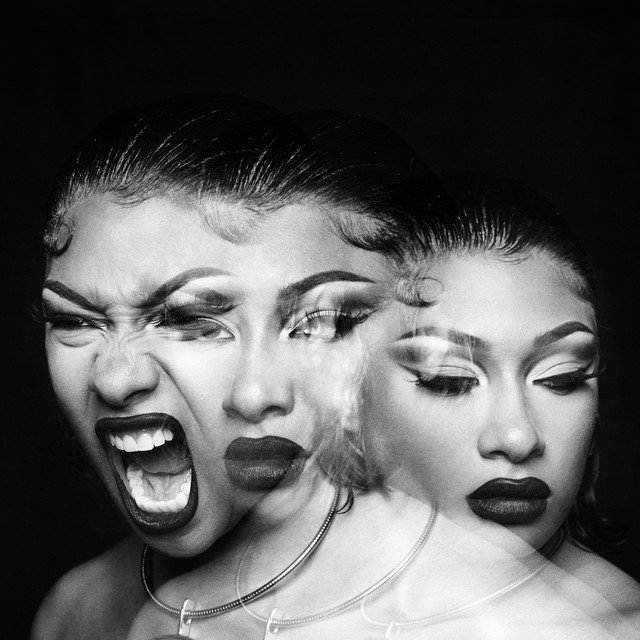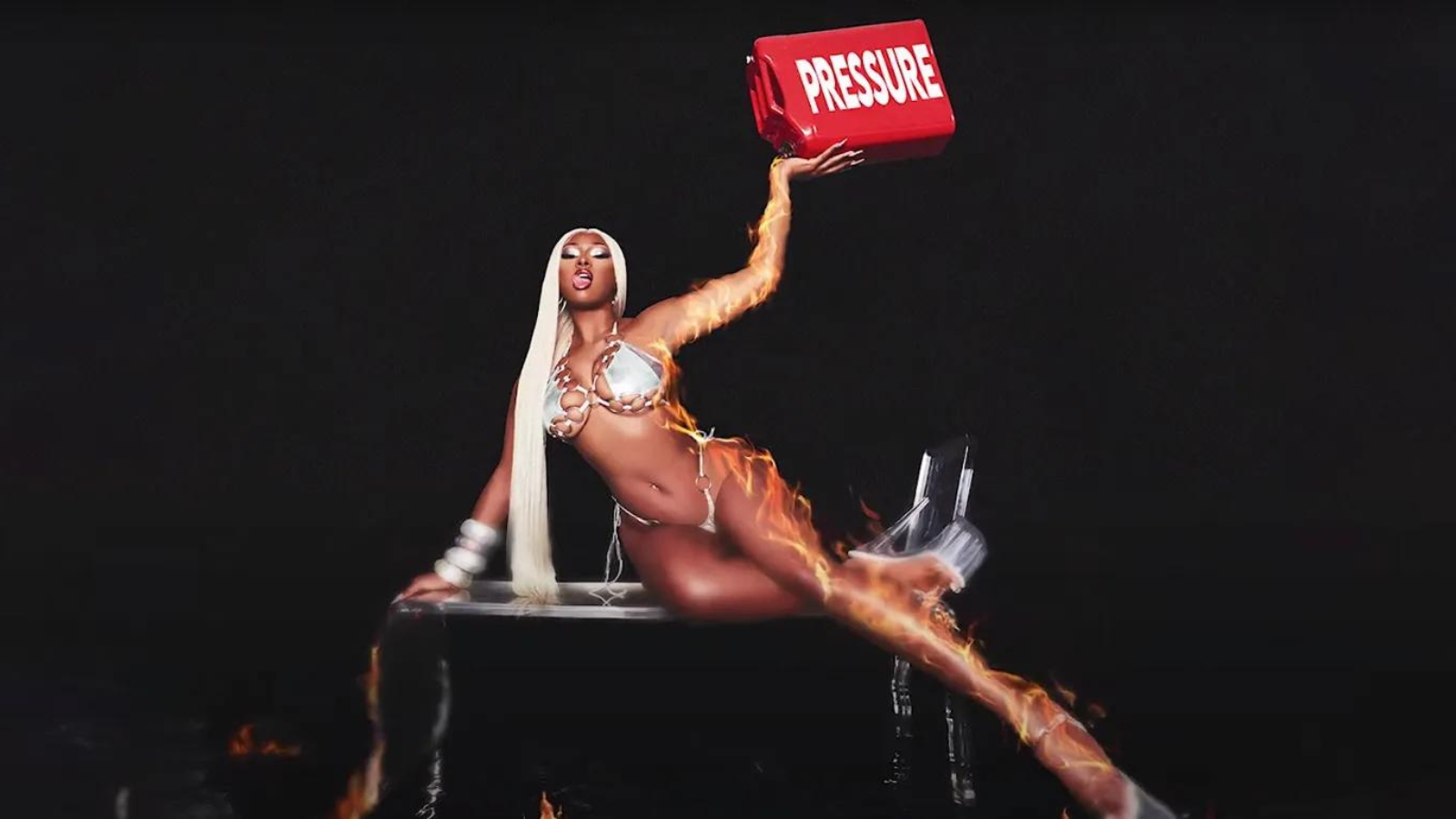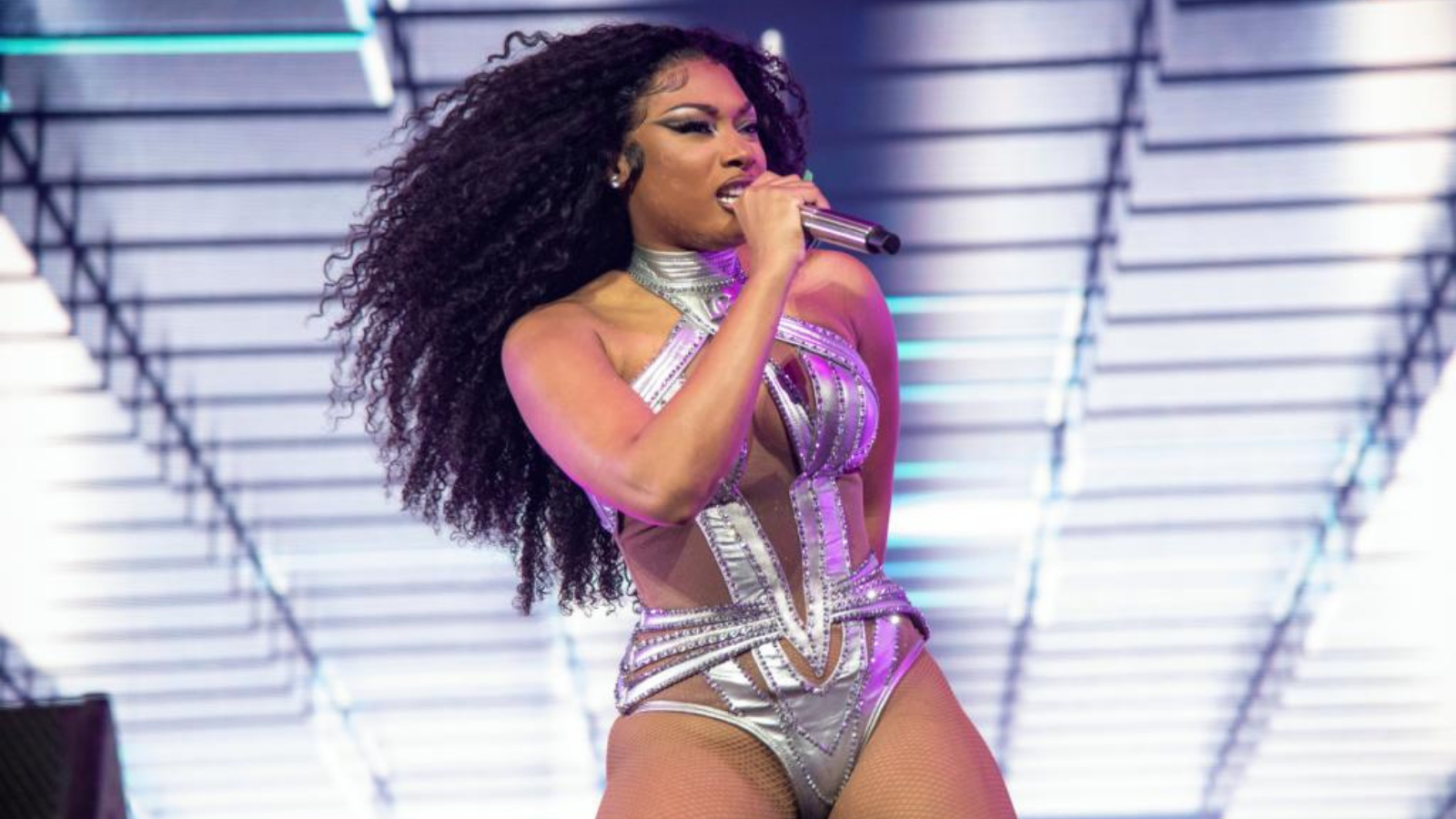Album Review: Megan Thee Stallion, ‘Traumazine’
Less than two years separate Good News and Traumazine, yet the latter is such an essential step forward for Megan Thee Stallion’s artistry that it feels like more time has passed between her debut and sophomore albums.
Traumazine, Megan Thee Stallion’s second studio album, attempts to merge the confessional nature of recent therapy-rap opuses with her continued stabs at crossover records that flaunt her pop appeal. Megan’s ambitions ultimately result in a record that overcomes its inconsistencies by way of somber vulnerability and a return to the H-Town hip-hop stylings that grounded her Tina Snow and Fever mixtapes.
To say Traumazine finds Megan in her “villain era,” would be a disservice to understanding just how open she makes herself on this record. With a career bookmarked by several alter egos ranging from Tina Snow to Suga, Megan finally sheds these different characters and tackles her most daunting role yet — herself. It’s almost poetic that Megan’s most personal project arrives at a time when her acting career is starting to kick into high gear. “Damn, where the real bitches at? / I'm finna bring real bitches back,” she promises on “NDA,” Traumazine’s fiery HitKidd-helmed opener. And that she does.
The notion of realness permeates Megan’s explorations of Black femininity, trauma in the public eye, and the legacy of her hometown in her music and persona. Much of Traumazine pulls from the blueprints of Queen Latifah and Lil Kim — bombastic rap tracks that champion the power of sex and prioritize self-ownership and agency in the face of a genre that continue to uphold misogynoir as one of its pillars. “Plan B,” the lethal East Coast-evoking anthem of independence that Megan debuted at Coachella, is the starting point for Traumazine’s evolution of her personal politics. Sexual prowess and sexual liberation are hallmarks of Megan’s music, and tracks like “Ms. Nasty,” “Red Wine,” and the Jhené Aiko-assisted “Consistency” are welcome additions to that section of her oeuvre. Traumazine finds Megan reiterating that it’s not just about how good she puts it down, it’s also about how she can wield her skills to reclaim control wherever and whenever she can.
300 / 1501 Certified
This tension of power and control is further contextualized through Megan’s soul-baring assessment of how public scrutiny has framed and intensified the different compounding traumas she has experienced over the past couple of years. “Not Nice,” a track that revels in the liberties of no longer performing niceties for those who don’t deserve it, houses lyrics such as “My skin not light enough/My dialect not white enough/Or maybe I’m just not shaped the way that makes these niggas give a fuck.” On “Gift & A Curse,” which recalls the relentlessly catchy piano line of “Megan’s Piano,” Megan spits, “My motherfuckin' body, my choice / Ain't no lil' dick takin' my voice / Crazy how y'all be the first ones tuned in listenin' / But claim I ain't makin' no noise.” For a woman whose body has been the subject of sociopolitical debates, gun violence, misogynoir, and unmitigated lust, Megan packs a world of interlocking discourses into her bars on Traumazine. In that vein, “Anxiety” and “Flip Flop” are the two Traumazine tracks that will likely become essential songs for the Megan Thee Stallion canon. Of the two songs, “Anxiety” is the stronger offering with its expert combination of a radio-friendly hook, introspective verses, and a folky yodeling vocal loop.
By and large, the guest artists on Good News delivered strong contributions to that album’s soundscape. Traumazine’s featured artists, however, fail to adequately complement the verve Megan brings to the record. Pooh Shiesty’s guest verse on “Who Me” almost completely soils what could have been one of the strongest records on the album, Latto’s guest verse on “Budget” feels like a waste of space, and “Star” is the wrong intersection of Lucky Daye and Megan’s sounds. There’s also “Pressurelicious,” whose Future verse somehow sounds infinitely worse than it did upon its debut, and the Dua Lipa-featuring “Sweetest Pie” which inexplicably (hello SPS boost!) closes the album on a poptastic note that feels discordant to the serious tone that hovers over most of the album. Between “Sweetest Pie” and “Her,” Traumazine’s fourth radio single, the latter is a more natural attempt at pop crossover — a phenomenon that still challenges Megan despite her best crossover moments coming from songs that aren’t consciously trying to reach a Top 40 audience.
Nonetheless, Key Glock (“Ungrateful”) and Rico Nasty (“Scary”) pull their weight. “Ungrateful” finds Key Glock juxtaposing a relaxed delivery against Megan’s biting tone, while “Scary” finds Megan and Rico trading verses across an extended horror metaphor complete with background shrieks and haunted house-esque synths. “Southside Royalty Freestyle,” however, is the album’s crown jewel of collaborations. Prior to “Big Ole Freak” and Summer 2019, those with their ears to the street fell in love with Megan through her cyphers and parking lot freestyles. Now, Megan leads her own cypher, and she holds space for one of the most influential and underappreciated cities in hip-hop; “But we gon' keep drippin' on, and keep pimpin' on, y'all gon' keep sippin' on,” muses Sauce Walka.
Despite several missteps (the singing needs to be scaled back) and production that sounds crisp but is ultimately less interesting than Megan’s past beat choices, Traumazine is a welcome, necessary, and impressive step forward for an artist that continues to be one of the most intriguing figures of the current era.
Vote for Megan Thee Stallion at the 2023 Bulletin Awards.
Listen to: “Gift & A Curse” | “Anxiety” | “Flip Flop” | “Southside Royalty Freestyle” | “Scary” | “Not Nice”
Score: 73






J-Hope of BTS joins forces with J. Cole for a heartfelt lo-fi rumination on charting new paths in their respective careers.